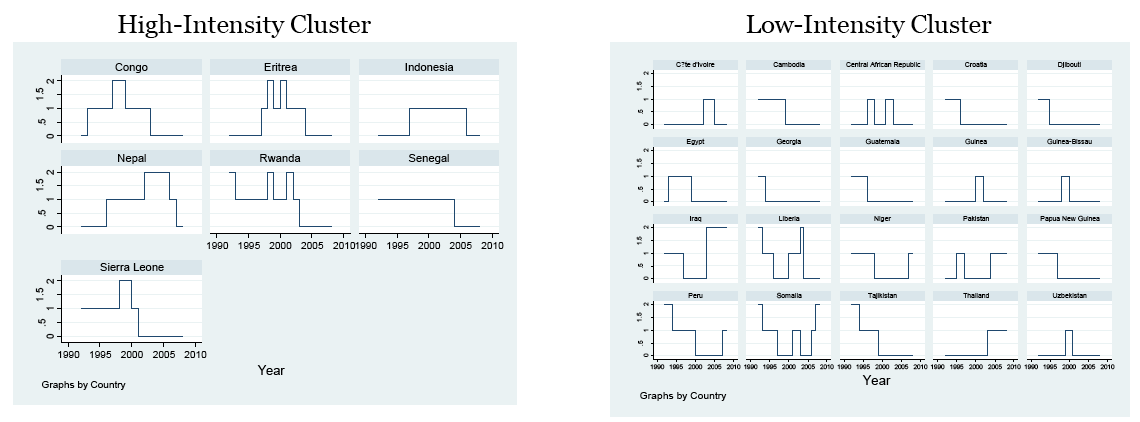Editor’s note: This post is part of a series showcasing Barcelona GSE master projects by students in the Class of 2014. The project is a required component of every master program.
A bullet a day keeps the doctor away: the effect of war over health expenditure
Authors:
Rita Abdel Sater and María José Ospina Fadul
Master Program:
Health Economics and Policy
Project Summary:
Although there is an ongoing debate on how much an increase in health expenditure would actually improve the health condition of its population (as this relation also depends in factor such as efficiency), the truth is that the level of expenditure in many developing countries is still under the basic needed level suggested by the World Health Organization. Furthermore, it has become clear that the public budget plays a fundamental role in the financing of a health system: in fact, the public expenditure on health should increase by 5% on average in these countries to provide the basic conditions in order to accomplish the millennium goals. However, the struggle to achieve acceptable levels of health expenditure has faced several obstacles. This article intends to determine if war is in fact one of them.
Within this context, this article tries to determine the effect of war over health expenditure level and composition, particularly in terms of the public budget participation. So far several articles have examined the effects of war over public health but none have determined the effect that it has over the levels and the composition of the health expenditure. Additionally, this article contributes to the existent literature in the sense that it classifies conflicts as high or low intensity and discerners between these two when determining their effect over health expenditure.
We used panel data on the 27 countries that had both episodes of war and episodes of peace in the period that goes from 1995 to 2008. We applied clustering techniques to classify these conflicts as high or low intensity and after this we used Arellano-Bond estimators to determine the effect of war over the level and composition of health expenditure.

Surprisingly, we found that low intensity wars have a negative and statistically significant effect over health expenditure while there seems to be no effect when there is a high intensity war. Moreover, we found that public expenditure in health increases when there is a high intensity war while there is no change in the composition when there is a low intensity war. These results suggest that when there is a high intensity conflict the decrease in private investment in health is compensated by an increase in public expenditure, while in countries exposed to low intensity wars the decrease in private expenditure is not equalized by an increase in public expenditure.
Finally, in terms of the compositions of this expenditure we found that the public expenditure in health as a percentage of total public expenditure stays the same in countries exposed to high intensity conflicts while it decreases in countries with low intensity conflicts. These results, in combinations with the former, provide empirical evidence to support Peacock and Wiseman’s expenditure displacement theory according to which public expenditure increases during times of crisis.
[slideshare id=38816026&doc=effect-war-health-expenditure-140908043800-phpapp01]
